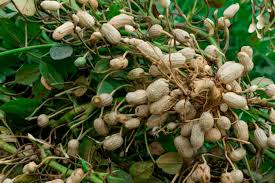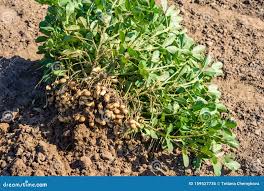Unveiling the Peanut Bush: A Comprehensive Guide
The peanut bush, also known as the peanut plant or groundnut plant, is a fascinating botanical specimen with a rich history and diverse uses. Let's explore the clear categories that define the characteristics and significance of the peanut bush:
1. Botanical Description
- Legume Family: The peanut bush belongs to the legume family, Fabaceae, and is classified under the genus Arachis.
- Characteristics: It typically grows as a low-lying, herbaceous plant with pinnate leaves and yellow flowers that develop into pods containing the peanut seeds.
2. Cultivation and Growth
- Preferred Climate: Peanut bushes thrive in warm climates with well-drained soil and ample sunlight.
- Cultivation Methods: They are typically grown as annual crops, with seeds planted directly in the soil during the spring months.

peanut bush
3. Nutritional Value
- Rich in Nutrients: Peanuts harvested from the bush are a valuable source of protein, healthy fats, fiber, vitamins (such as B vitamins), and minerals (such as magnesium and phosphorus).
- Versatile Uses: Peanuts can be consumed raw, roasted, or processed into various products like peanut butter, oil, and flour.
4. Economic Importance
- Commercial Crop: Peanuts are cultivated on a large scale in many regions around the world, contributing significantly to the global food industry.
- Trade and Commerce: They are traded internationally and are a staple ingredient in numerous culinary traditions worldwide.

peanut bush
5. Cultural Significance
- Culinary Delicacy: Peanuts play a central role in the cuisine of many cultures, featuring prominently in dishes ranging from savory stews to sweet desserts.
- Symbolism: In some cultures, the peanut bush symbolizes fertility, prosperity, and abundance, and is associated with rituals and celebrations.
6. Health Benefits
- Heart Health: Peanuts are rich in monounsaturated fats and antioxidants, which are beneficial for cardiovascular health.
- Weight Management: Despite being calorie-dense, peanuts can aid in weight management due to their satiating properties and nutrient density.
Conclusion
The peanut bush is not only a botanical marvel but also a versatile crop with myriad uses and benefits. From its nutritional value to its economic significance and cultural importance, the peanut bush continues to play a vital role in agriculture, cuisine, and society at large. As we appreciate its contributions to our lives, let us also acknowledge the ingenuity and resilience of the farmers who cultivate this remarkable plant.